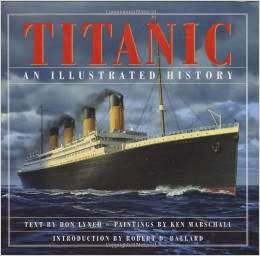Okay, I know it's close to Mother's Day but there's something about Fathers and Daughters. God knows, I adored mine. He was funny, smart and bullheaded, just the kind of man to indulge a mischievous daughter who didn't want to obey her mom. Yes sir, I think my father was brilliant but a lot of girls feel that way about their dads.. Adela Rogers St. Johns certainly did and she captured that father-daughter spark in her biography, Final Verdict. Of course, when she said her Old Man was brilliant the rest of the world agreed. Earl Rogers may still be the greatest trial attorney that ever entered a courtroom.
It's funny but no one remembers Earl Rogers these days. Mention Johnny Cochran or F. Lee Bailey or Gerry Spence and legal heads will nod. Talk about Bill Kunstler or Clarence Darrow and some history mavens will admit they had skill but they point out these guys lost as many cases as they won. Talk about the man who Perry Mason was based on and you'll hear "Perry who??" Well, such is the nature of fame. Still, in the first half of the twentieth century, if you were charged with murder and everyone assumed you were guilty, the best news you could hear was "Earl Rogers is taking your case." And if he was, Adela would be at your side.
In the era before computer simulations Rogers brought re-enactments into the courtroom and visual aids to instruct and aid the juries. He was an expert on forensic evidence and is considered the inventor of the art of cross-examination, one of the skills highlighted in the character, Perry Mason. Perry used to irritate me with his habit of cross-examining a witness until he or she confessed to the crime. Earl Rogers actually did that while Adela watched him from the first row behind the defense table. She went with him to client meetings in jail-cells and crime-scene investigations while Mother sat in the house and raged about the husband and daughter who embarrassed her so with their antics. Adela wouldn't or couldn't become the kind of girl her mother wanted any more than her mom could be the kind of woman Earl Rogers needed in his life. Mrs. Rogers was beautiful, popular and demanding but she lacked the spiritual generosity and intellectual curiosity her husband treasured. In the end, the couple split up and Adela looked after her dad, instead of him looking after her.
Earl Rogers had incandescent gifts but his life and career were shortened by booze. Time after time he would disappear for days or end up under arrest himself and he drank up the fortune he earned. Eventually the alcohol affected his brain and Rogers could not give a client what he felt they were entitled to, the very best defense. That broke the heart of the lawyer and probably increased his drinking. Finally, Adela asked the court to commit her father to an asylum so he could dry out. In typical Rogers fashion, he fought the commitment, cross-examined his daughter and freed himself with just two questions. Of all of his victories, this may have been the costliest as he died in a flophouse a few months later.
Adela writes of her father with with great dignity, honesty and love, rightfully crediting him with the confidence, knowledge and network that helped her build her own career as one of the first Hollywood journalists. I used to watch her on chat shows talking about the early days of pictures or about San Simeon and William Randolph Hearst. I don't remember her talking about her Dad.
Well, great fathers are hard to speak of once they're gone, even the ones who let you down. With all of his troubles, Earl Rogers did the best he could for his daughter, just as he gave his clients the best defense he could muster. In turn, she loved and was loved by him. That's my final verdict.









